As osteopaths, part of our job is to promote osteopathy to the masses. We do a lot of this by word of mouth, and we rely on our patients to also spread the word after they’ve received a successful treatment here at Northcote Osteopathic Clinic. We and other osteopathic clinics also make use of the internet to help market and advertise our services. Despite all of our efforts, common misconceptions exist about osteopathy. We'd like to take this opportunity to debunk some of these myths now:
“Osteopathy… that’s backs isn’t it?”
One of the most common misconceptions out there is that osteopaths just treat back pain. Whilst back pain is the number one complaint that most osteopaths see daily, we treat pain all over the body. Osteopaths can treat a wide range of conditions including headaches, neck and shoulder pain, arthritic pain, hip, knee and ankle pain, as well as other conditions like vertigo, sciatica and pregnancy-related pain. If you need help with pain but are not sure if we can help, call us today on (03) 9482 3196 and we will discuss it with you over the phone.
“Osteopaths just treat bones”
You can be forgiven for thinking that an osteopath would specialise in treating bones. After all, the word ‘osteo’ translates from classical Greek into ‘bone’. Osteopathy founder, Andrew Taylor Still, even used to advertise his services as a ‘bonesetter’ (a person who would relocate dislocations and fractures). So, anyone who has done a bit of reading around the history of osteopathy may have come across these phrases and be led down the wrong path. But times have changed, and one of the fundamental principles of osteopathy is that the body is a unit. It is one being that needs to be treated as a whole in order to get well again. Yes, we treat problems associated with the bones, but we also treat joints and muscles and more. But when we treat these areas, we are treating all of the systems of the body. Our treatments aim to affect the blood, nerves and other connected systems in the body to restore balance and promote health. So in a nutshell, we treat all parts and systems of the body – not just bones!
“Osteos, physios and chiros are the same”
We commonly get asked what the difference is between osteopathy and other therapies like physiotherapy and chiropractic. We all treat the body with the same goal in mind - to help someone in need and improve their health. Where we differ most is in the philosophy and approach of our treatments. Osteopaths are very holistic in their approach to treating the body. We always treat with the entire person in mind. The bottom line is, it doesn’t matter if someone is an osteo, chiro or physio, if they are good, they can all help you improve your life. We prefer osteopathy because we feel if offers the patient the entire package. Come and find out for yourself!
“The osteopath will crack your back”
This is not necessarily so. Yes, we are skilled in the art of manipulation (or ‘cracking’) of joints and will use it (with your permission) if we feel it is necessary. Osteopathy is so much more than just cracking. We are proud of our toolkit when it comes to treating the body. We spend 4-5 years studying at university to become an osteopath, and we learn lots of amazing techniques along the way. There is every possibility you will receive a treatment from an osteopath without the hint of a crack. There are some conditions where cracking is not suitable. We know what to ask and what to look for to know when manipulation is or isn’t required. If you are worried or concerned about anything to do with treatment, our best advice is to simply ask your practitioner and have a discussion about it. We guarantee they will ease your mind. And it is always your choice if we manipulate or not!
“Osteopathic treatment hurts”
When it comes to having your body treated by another person’s hands, it can sometimes leave you anxious about what to expect. Being treated by an osteopath should not be a painful experience. Many of our techniques are incredibly gentle and our aim is to reduce your pain, not increase it. Yes, there are certain techniques we perform which can be uncomfortable… Have you had your deep hip flexor muscles released? If you have, you're aware of the kind of discomfort we are talking about. But again, it shouldn’t be painful. If anything is painful during treatment, always tell your practitioner. There is a good chance we’ll know by the look on your face, but open communication is always best.
We hope this blog has been able to debunk some of the misconceptions surrounding osteopathy as a profession. If you have any questions, please come and see us, or give us a call – we’d love to help.
References
1. General Osteopathic Council. 2020. About osteopathy. [Online]. Available from: https://www.osteopathy.org.uk/visiting-an-osteopath/about-osteopathy/. [Accessed 02 Jul 2020]
2. Osteopathy Australia. 2020. About osteopathy. [Online]. Available from: https://www.osteopathy.org.au/about-osteopathy/what-is-osteopathy/treatment-faqs. [Accessed 02 Jul 2020]
3. Merriam-Webster. 2020. oste-. [Online]. Available from: https://www.merriam-webster.com/dictionary/oste-. [Accessed 02 Jul 2020]
4. Gevitz, N. 2014. A Degree of Difference: The Origins of Osteopathy and First Use of the “DO” Designation. The Journal of the American Osteopathic Association. 114 (1). 30-40. Available from: https://jaoa.org/article.aspx?articleid=2094619


